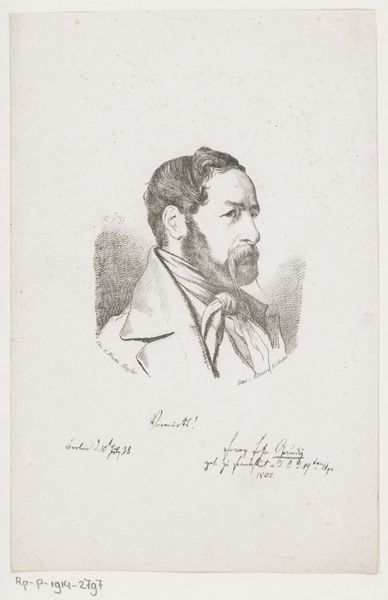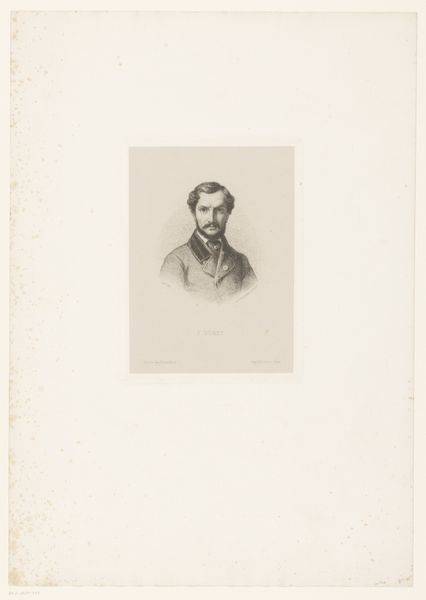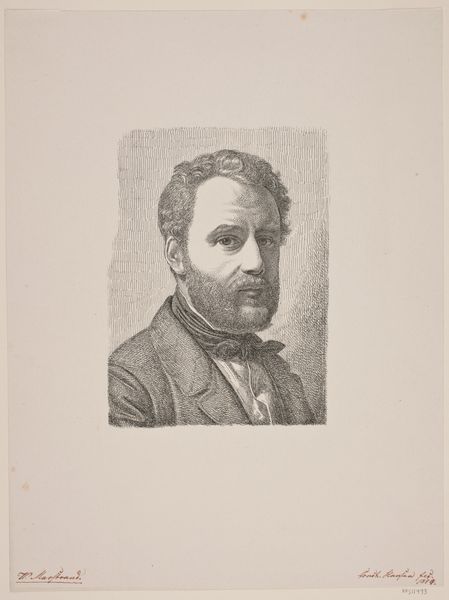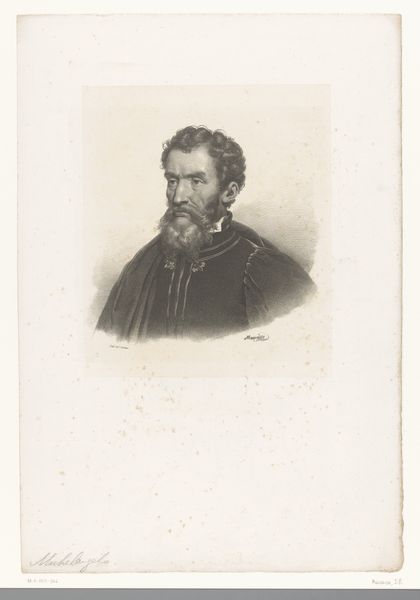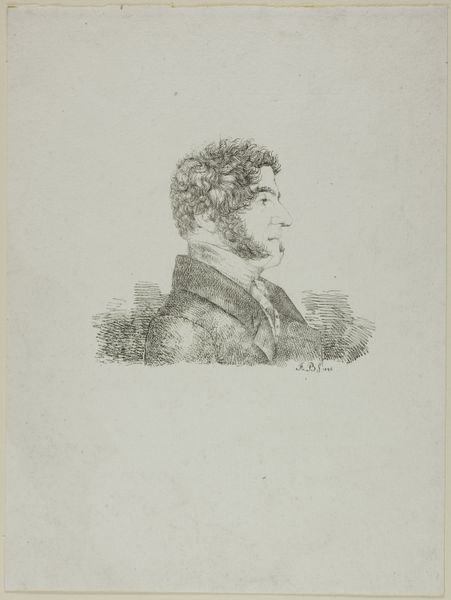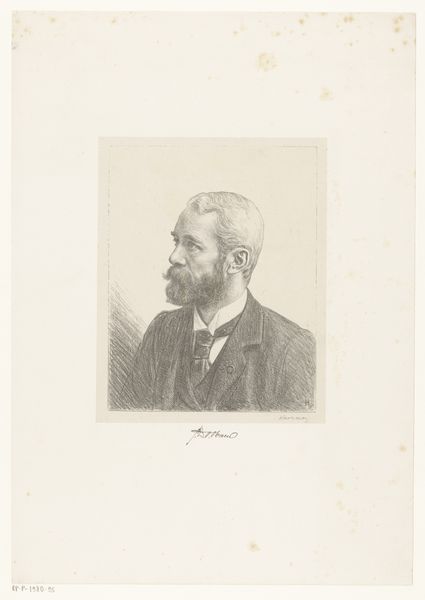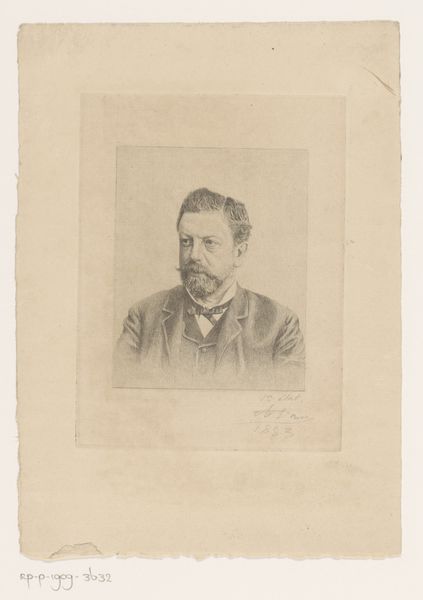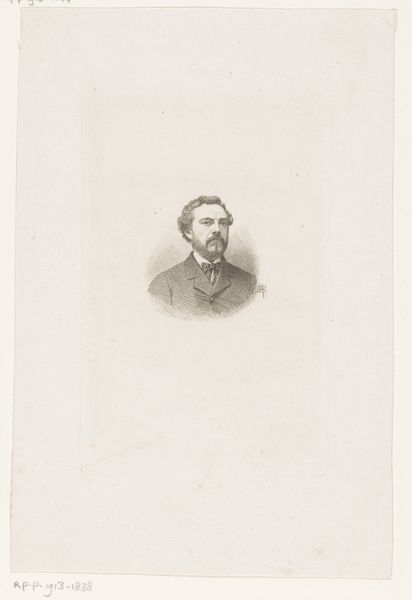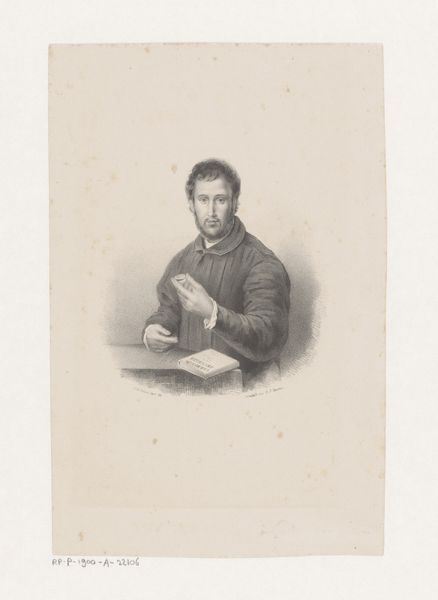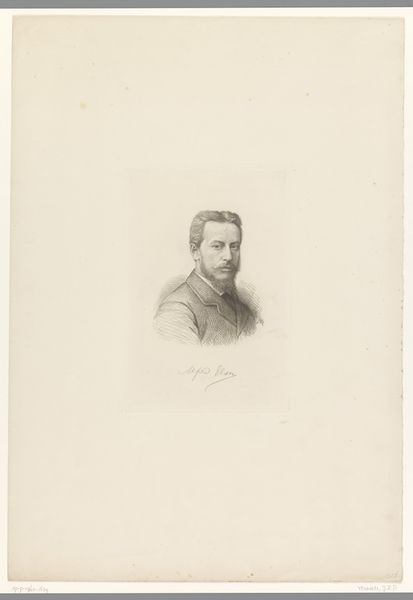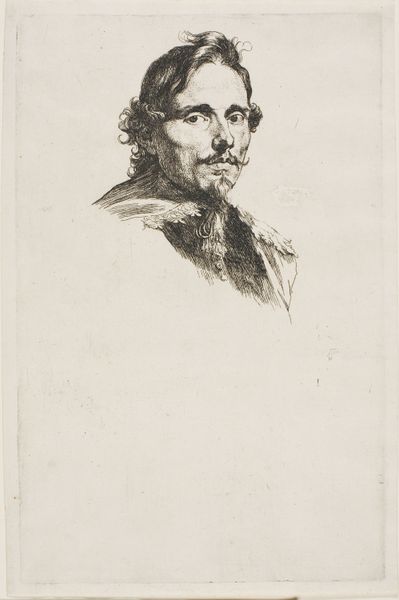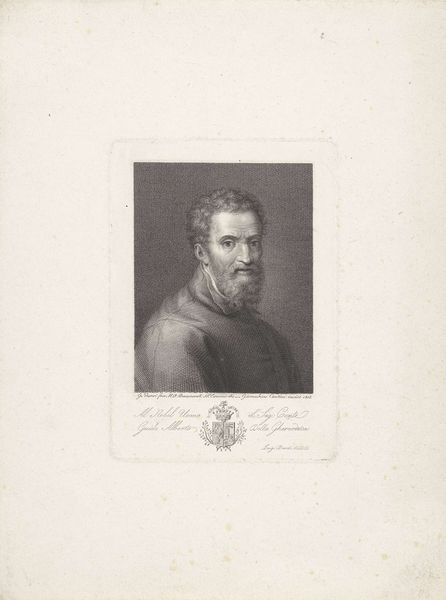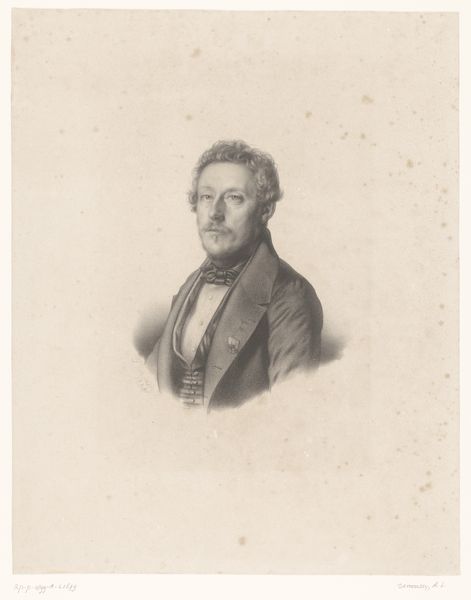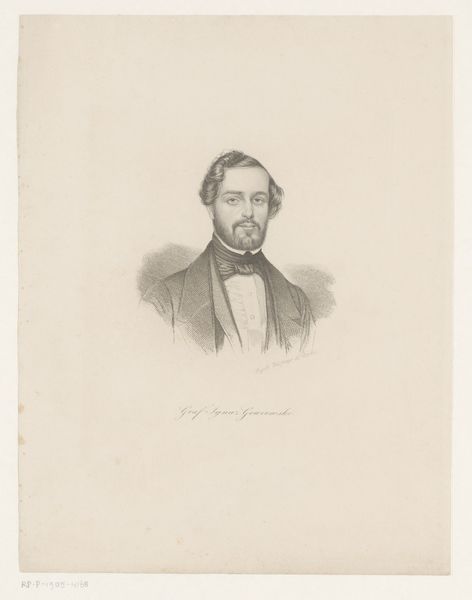
drawing, pencil
#
portrait
#
pencil drawn
#
drawing
#
pencil sketch
#
pencil drawing
#
pencil
#
portrait drawing
#
academic-art
#
realism
Dimensions: height 130 mm, width 105 mm
Copyright: Rijks Museum: Open Domain
This is Anton Muttenthaler's portrait of Christian Friedrich Gonne, made sometime in the mid-19th century. It’s a finely rendered engraving, a medium that allowed for the wide distribution of images. Consider the social role of portraiture at this time. Photography was in its early stages, but engravings like this provided a way to disseminate images of notable individuals. Who was Gonne, and why was he deemed worthy of having his portrait made and distributed? Was he a politician, a writer, or perhaps a member of the aristocracy? His stern gaze and formal attire suggest a man of some importance. In nineteenth-century Europe, the production and circulation of images were closely tied to social status and power. Further research into the archives of the period might reveal more about the sitter and the statement that the portrait aimed to make. What was Muttenthaler trying to say about Gonne, and what did that say about society at the time?
Comments
No comments
Be the first to comment and join the conversation on the ultimate creative platform.
